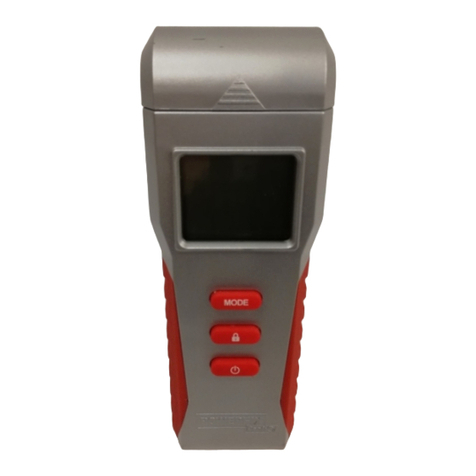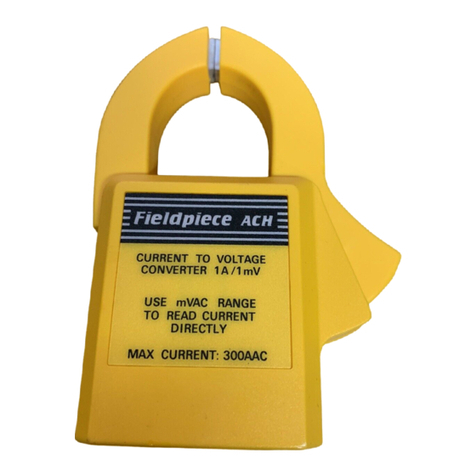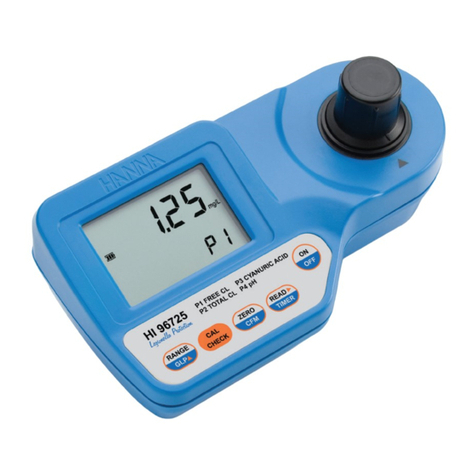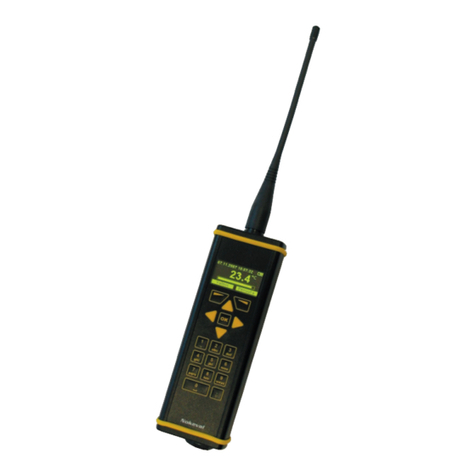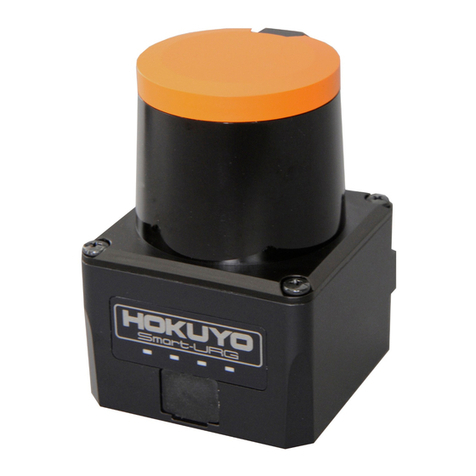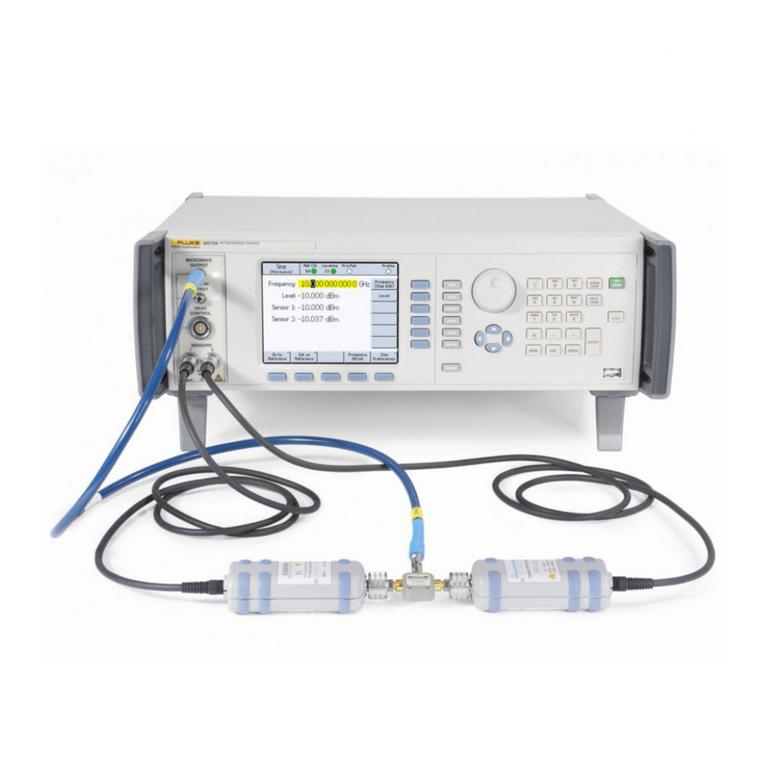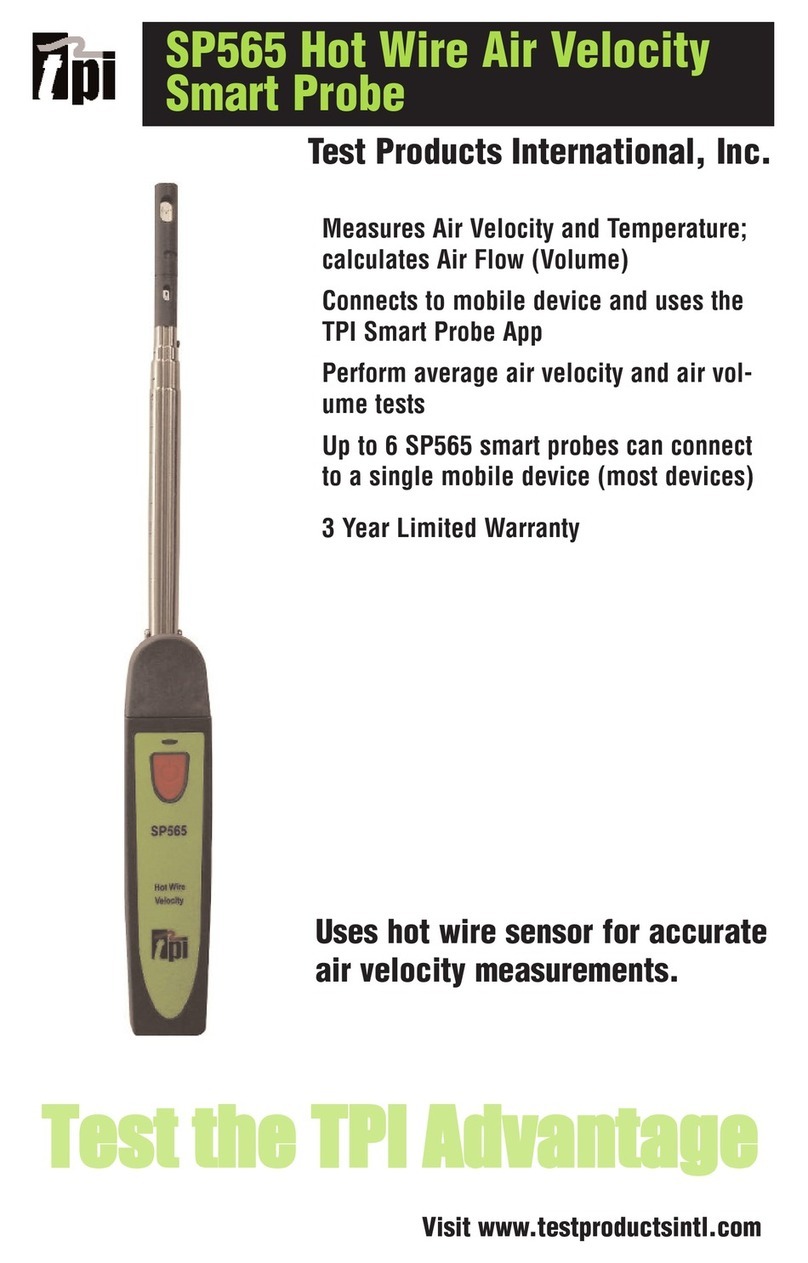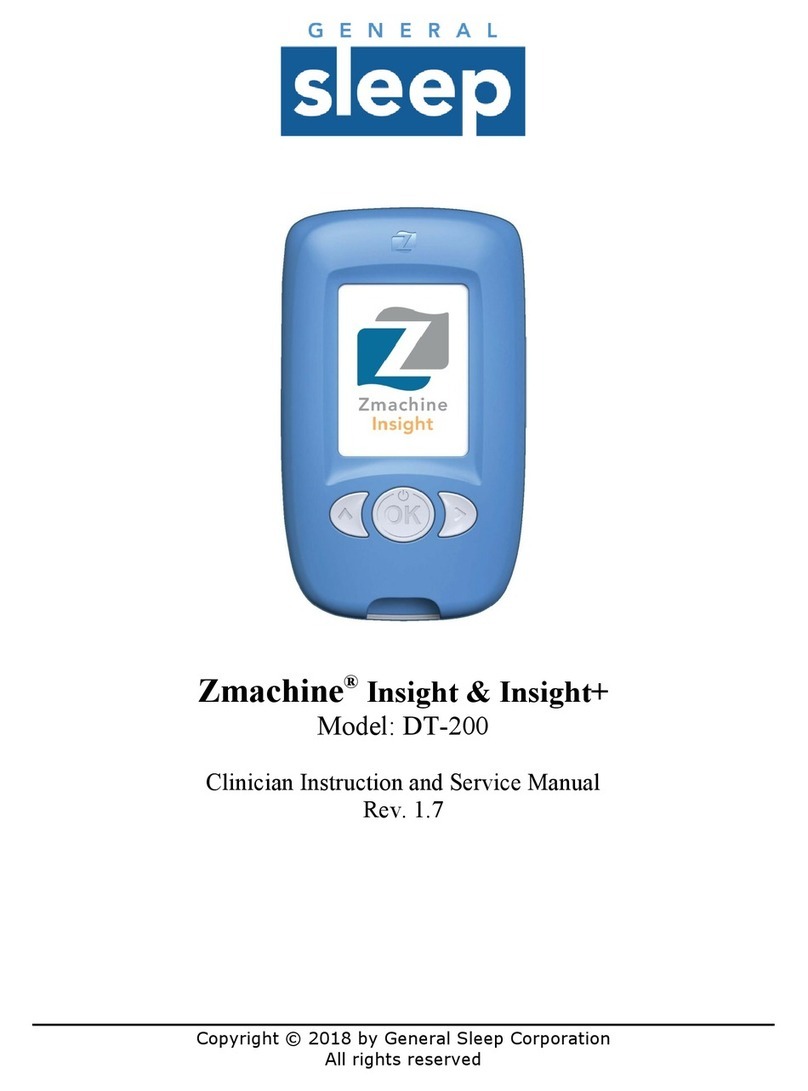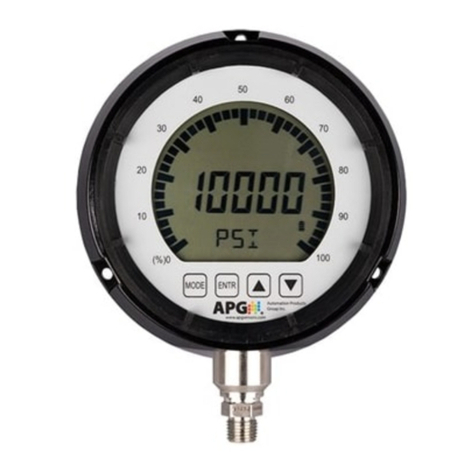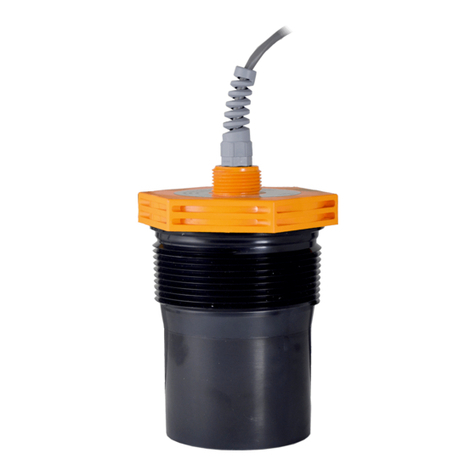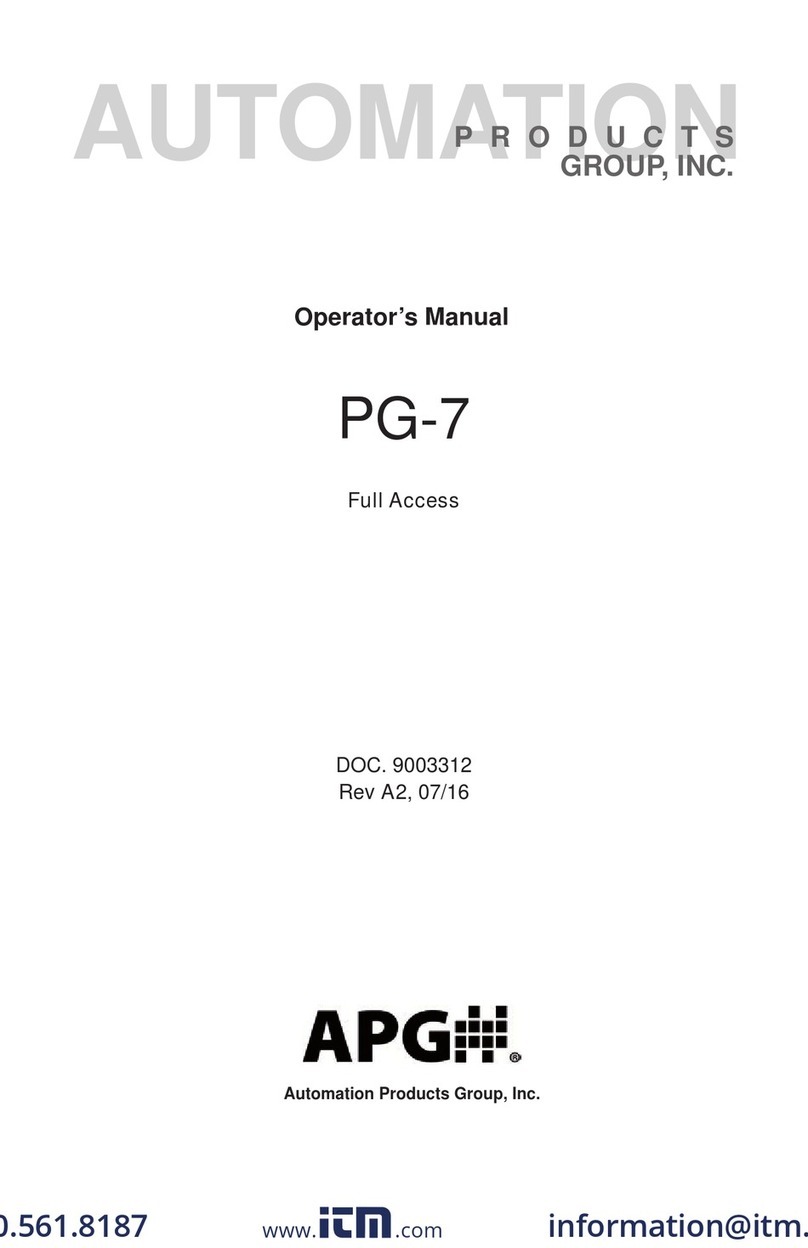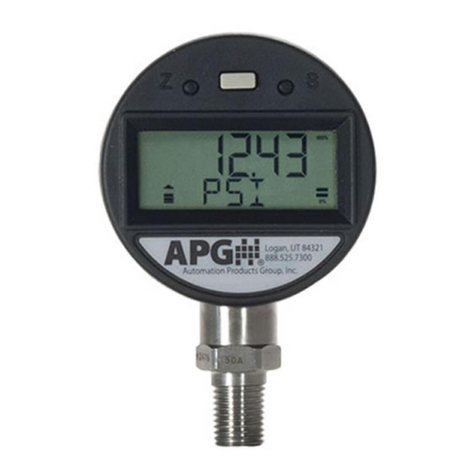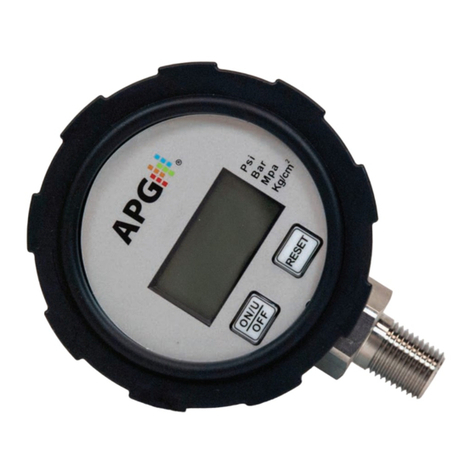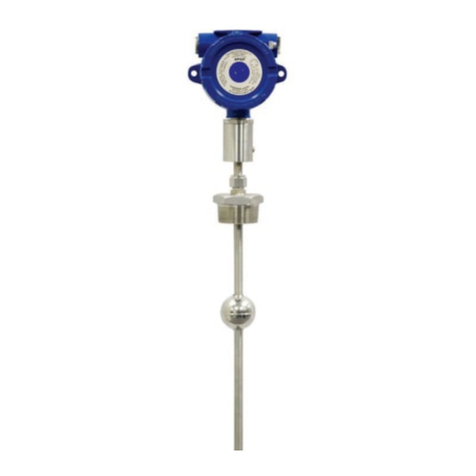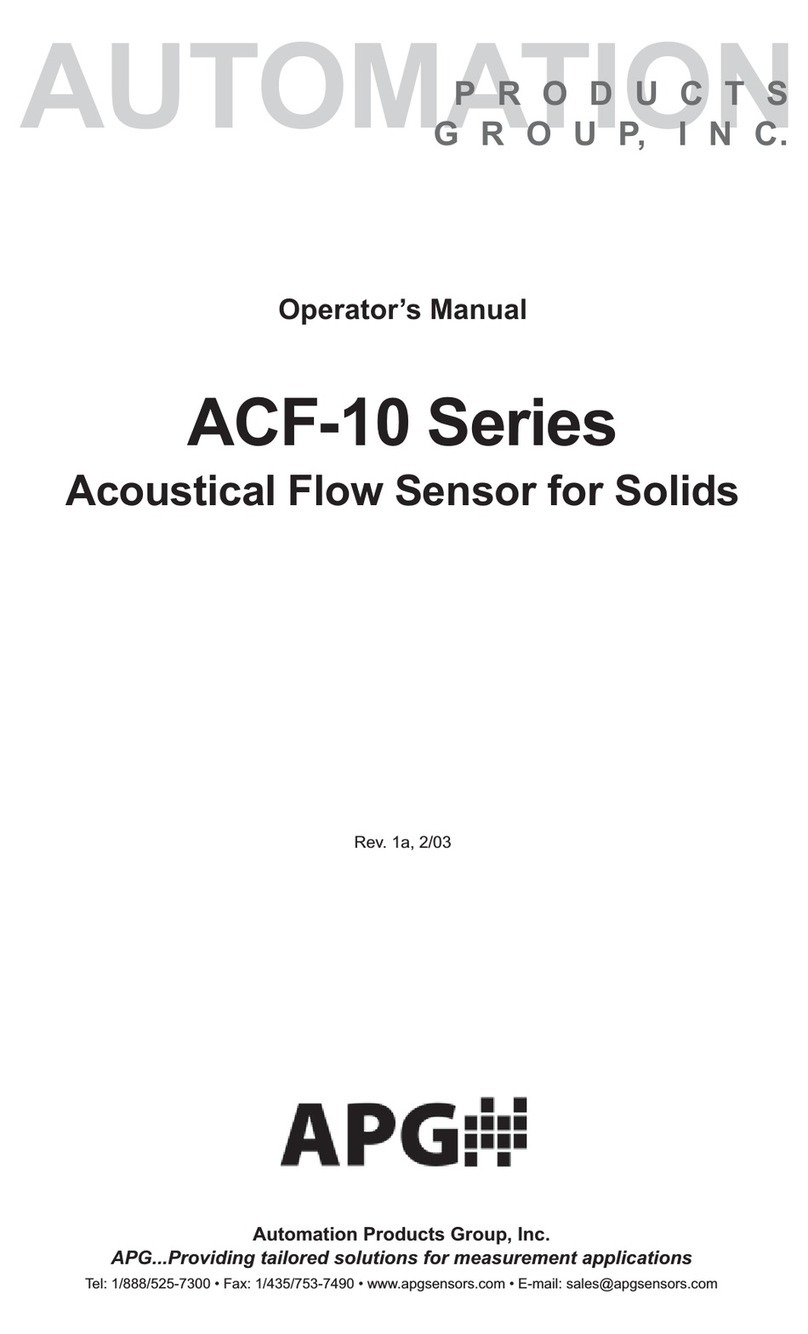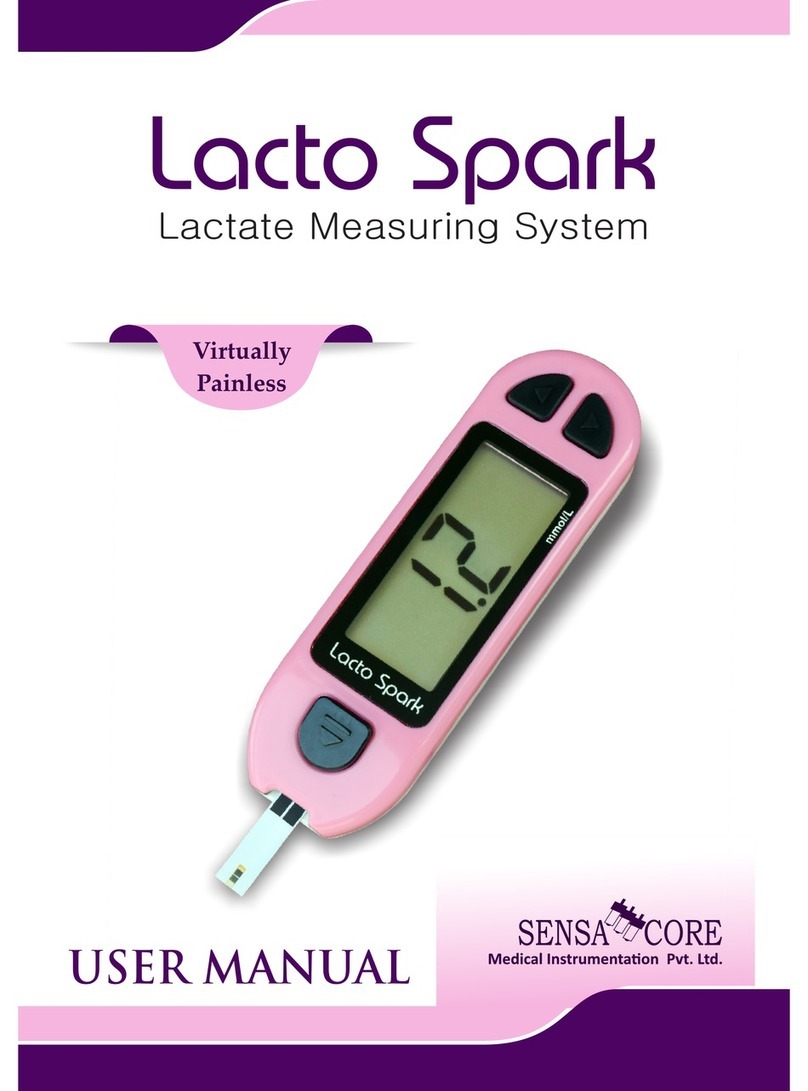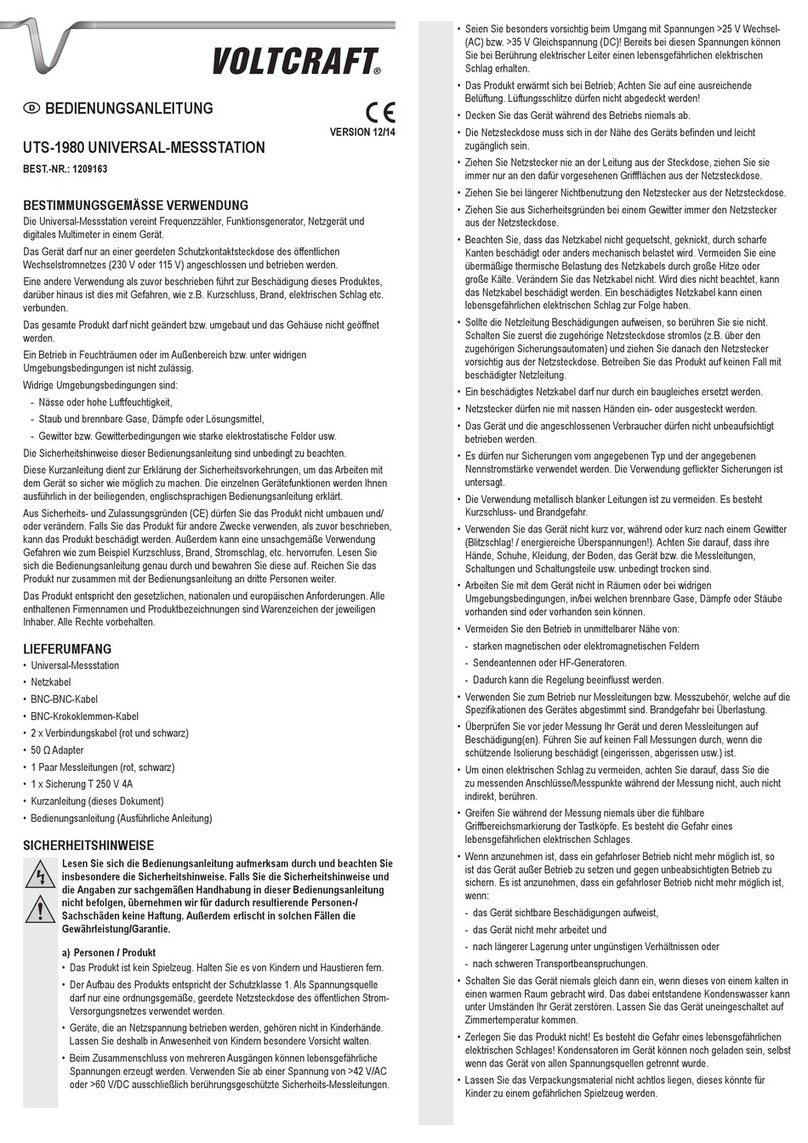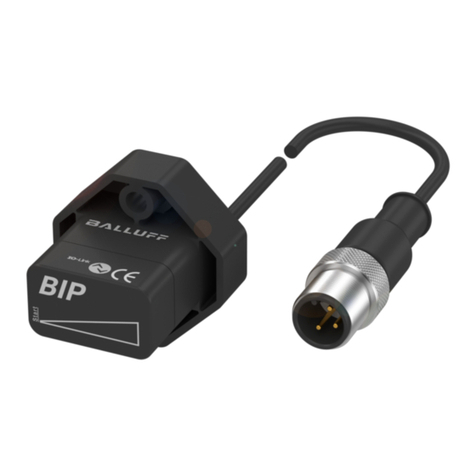
RPX Continuous Level Probe
Installation Guide
For RPX Series
R
Automation Products Group, Inc.
1025 W 1700 N Logan, UT 84321
Thank You
Thanks for purchasing an RPX resistive chain continuous level probe from us! We appreciate your
business and your trust. Please take a moment to familiarize yourself with the product and this
manual before installation. If you have any questions, at any time, don’t hesitate to call us at 888-
525-7300.
1. Description
2. How To Read Your Label
3. Warranty
4. Dimensions
5. Mounting and Installation
Instructions
6. Terminal Tables
7. Removal Instructions
8. Oset and Span Calibration
9. General Care
10. Repair Information
11. Hazardous Location Wiring
Table of Contents
5Mounting and Installation Instructions
Mounting Instructions:
• Flange Mounting: Provide the compatible mating ange on the tank and install using a
suitable gasket.
• Plug Mounting: Provide the compatible female boss on the tank and install the probe with
thread tape.
Additional care must be taken to ensure:
• The sensor is located away from strong magnetic elds, such as those produced by motors,
transformers, solenoid valves, etc.
• The medium is free from metallic substances and other foreign matter.
• The sensor is not exposed to excessive vibration.
Installation Notes:
• Do not locate your RPX series level sensor near inlets/outlets.
• If there is surface wave action, then use a time-delay relay or stilling tube. If a stilling tube is
used, drill vent holes in the tube and use a spacer to assure the oat has free travel inside the
tube (See Figure 5.1).
• The RPX can be mounted up to 20° from vertical.
4Dimensions
NOTE: Scan the QR code to the right to see the full
user manual on your tablet or smartphone. Or visit
www.apgsensors.com/support to nd it on our website.
Part # 200853
Doc # 9006503 Rev A
Each label comes with a full model number, a part number, and a serial number. The model
number for the RPX will look something like this:
The model number correlates with all the congurable options and tells you exactly what you have.
Compare the model number to the options on the datasheet to identify your exact conguration.
You can also call us with the model, part, or the serial number, and we can help you.
You’ll also nd all hazardous certication information on the label.
SAMPLE: RPX-A-P2W-S6-E-48.00
The RPX resistive probes contain reed switches in a 1/2” Ø stainless steel stem and a permanent
magnet in a oat. As the oat rises or falls with the level of the liquid, the magnet inside the oat
acts on the corresponding reed switches inside the stem, changing the output of the probe. The
RPX carries explosion proof, intrinsically safe, and non-incendive hazardous location approvals.
1Description
2How To Read Your Label
3Warranty
Figure 5.1
Stilling
Tube
Inflow Inflow
Spacer
20° 20°
20°
This product is covered by APG’s warranty to be free from defects in material and workmanship
under normal use and service of the product for 24 months. For a full explanation of our Warranty,
please visit https://www.apgsensors.com/about-us/terms-conditions. Contact Technical Support to
receive a Return Material Authorization before shipping your product back.
Scan the QR code below to read the full explanation of our Warranty on your tablet or smartphone.
Electrical Installation Instructions:
• Install conduit and/or cable with necessary seal(s) per Drawing 9001930 or 9001932 for
hazardous locations.
• Remove the housing cover.
• Check the Terminal Tables in section 6 before making any connections.
• Connect the wire for your system to the appropriate terminal.
• Replace the housing cover.
RPX Dimensions
DANGER: Do not remove the housing cover until the atmosphere
is determined safe, and the power supply is turned o.
6Terminal Tables
Terminals for RPX-A and RPX-I
White (Internal)
Black (Internal)
Red (Internal)
Output
Ground
VDC Supply
Black (Internal)
White (Internal)
Red (Internal)
Output
+24 VDC
Terminals for RPX-R (Resistive Output)
4.5”
114 mm
4.5”
114 mm
0.5”
13 mm
ML
S2
S1
IMPORTANT: Your RPX MUST be installed according to drawing
9001930 (IS Hazardous Installation Drawing For RPX) or 9001932
(Hazardous Mounting Drawing RPX) to meet listed approvals. Faulty
installation will invalidate all safety approvals and ratings.
